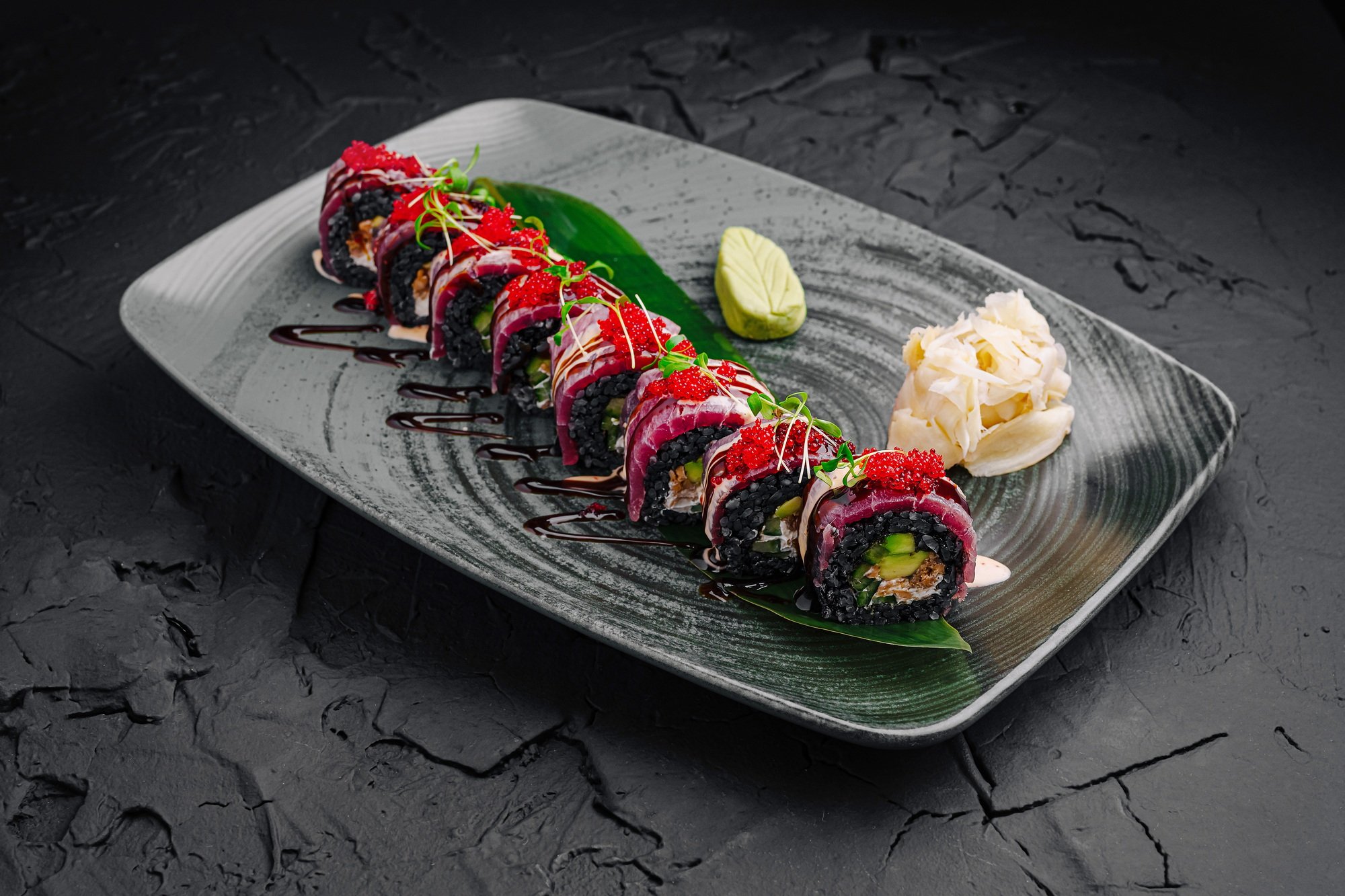Key Takeaways

- Growing Market Demand: The sushi market is expanding, presenting lucrative opportunities for entrepreneurs looking to invest in a franchise.
- Established Brand Recognition: Partnering with a recognized sushi franchise provides immediate brand awareness and access to a loyal customer base.
- Comprehensive Training and Support: Franchisees benefit from extensive training programs and ongoing support to navigate the challenges of running a sushi business successfully.
- Variety of Franchise Options: Different sushi franchises cater to unique preferences, allowing potential owners to choose options, such as American-style sushi or authentic Japanese experiences.
- Initial Investment Requirements: Starting a sushi franchise typically requires substantial initial investments, making financial planning essential for success.
- Competitive Landscape: The sushi market is highly competitive, necessitating effective marketing strategies and a focus on quality to differentiate your franchise from others.
If you’re considering diving into the world of sushi franchises, you’re not alone. The sushi market has exploded in popularity, and with it comes a wave of opportunities for savvy entrepreneurs like you. Whether you’re a sushi enthusiast or just looking for a lucrative business venture, a sushi franchise could be your ticket to success.
Imagine serving up fresh, delicious rolls while tapping into a growing demand for healthy and unique dining experiences. With the right franchise, you’ll benefit from established brand recognition, proven business models, and comprehensive support. Let’s explore what it takes to make your mark in this exciting culinary landscape.
Overview of Sushi Franchise

A sushi franchise offers a unique opportunity for small business owners to enter the rapidly growing food industry. You’ll benefit from established brand recognition, which attracts customers who appreciate quality sushi. The franchise model provides a proven business structure, reducing risks often associated with starting a new venture.
Comprehensive support is another key advantage. Many sushi franchises offer training programs covering everything from food preparation to customer service, ensuring you understand all aspects of running the business. Additionally, marketing resources help generate awareness in local markets, promoting your new establishment effectively.
Investing in a sushi franchise could lead to substantial returns for your small business. The sushi market has shown exceptional growth, driven by increasing consumer interest in health-conscious dining options. Partnering with a recognized brand positions your business for success in this competitive sector.
Benefits of Owning a Sushi Franchise

Owning a sushi franchise presents numerous advantages that cater to small business owners. These benefits enhance your chances of success in a competitive culinary market.
Brand Recognition
Owning a sushi franchise provides significant brand recognition benefits. Utilizing an established brand name, like Hissho Sushi or Mai Sushi, enhances your marketing efforts and boosts customer awareness. You gain access to a loyal customer portfolio, allowing you to start with a ready-made customer base. This existing loyalty reduces the time and effort required to attract customers, making it easier to establish your small business in the community.
Training and Support
Franchises often include comprehensive training and support programs tailored for small business owners. You receive guidance on every aspect of running your sushi franchise, from operational procedures to customer service techniques. These resources ensure you understand the industry’s best practices and equip you with the skills necessary for success. Additionally, ongoing support from the franchisor helps you navigate challenges, making your entrepreneurial journey smoother.
Popular Sushi Franchise Options

Sushi franchises present excellent opportunities for small business owners. You can choose from various concepts that cater to different dining preferences and market demands.
Franchise A: Rock n Roll Sushi
Rock n Roll Sushi originated in Mobile, Alabama, founded by Lance and Gerry Mach Hallmark. This franchise specializes in American-style sushi and features full bars, making it a lively venue for social gatherings.
Financial Overview of Rock n Roll Sushi:
- Initial investment: Ranges from $218,500 to $585,000.
- Franchise Fee: $30,000.
- Units in operation: Over 70 locations, with plans for 100 locations by the end of 2025.
Support for Franchise Owners:
Rock n Roll Sushi provides real estate analysis, construction assistance, marketing support, operations guidance, cost control procedures, and business counseling. These resources ease the entry into the sushi market and enhance your chances of success.
Performance Insights:
In 2023, the average sales for all open Rock n Roll Sushi locations reached $1,152,938. This impressive figure highlights the potential profitability of this franchise for small business owners.
Franchise B: Koi Sushi Bar
Koi Sushi Bar focuses on an authentic Japanese sushi experience. You can expect fresh, delicious fish at competitive prices, appealing to customers who seek quality dining options.
While specific financial data isn’t available for Koi Sushi Bar, you can infer that its focus on authenticity and value positions it as a strong contender in the sushi franchise market. Considering Koi’s commitment to high standards will assist you in understanding market competitiveness and choices available for small business investment.
Challenges of Running a Sushi Franchise

Running a sushi franchise presents several challenges that you must navigate as a small business owner. Understanding these hurdles is essential for ensuring your venture’s success.
Initial Investment
Launching a sushi franchise requires a significant initial investment. Costs typically range from $250,000 to $500,000, depending on the franchise brand and location. Expenses include franchise fees, equipment, leasehold improvements, and inventory. You must prepare for ongoing operational costs as well, which encompass rent, utilities, and staff salaries. Establishing a solid financial plan is critical to managing these expenses effectively.
Competition in the Market
The sushi market is increasingly competitive, with a growing number of franchises vying for consumer attention. You face pressure from both established brands and emerging players. Ensuring your franchise stands out demands effective marketing strategies and a unique customer experience. Monitoring local competitors and adapting to market trends is vital for maintaining your market position. You also must leverage your franchise’s brand recognition while focusing on quality service and product offerings to attract and retain customers.
Conclusion

Entering the sushi franchise market offers exciting opportunities for aspiring entrepreneurs. With the right franchise, you can benefit from established brand recognition and a proven business model. You’ll receive the necessary support and training to navigate the challenges of this competitive industry.
The growing demand for sushi, driven by health-conscious consumers, creates a promising environment for your investment. By choosing the right franchise and implementing effective marketing strategies, you can carve out a niche in this thriving market. Embrace the journey and position yourself for success in the delicious world of sushi.
Frequently Asked Questions

What are the benefits of starting a sushi franchise?
Franchising sushi offers established brand recognition, proven business models, and extensive support. This reduces risks, provides marketing resources, and facilitates training, helping entrepreneurs succeed in a thriving market.
How much does it cost to invest in a sushi franchise?
The initial investment for a sushi franchise typically ranges from $250,000 to $500,000. Costs can vary based on the franchise brand and location, so it’s essential to research and prepare a solid financial plan.
What types of support do sushi franchises provide?
Sushi franchises offer comprehensive training programs and ongoing support, including marketing assistance and real estate analysis. This support helps franchise owners navigate challenges and run their business effectively.
Are there popular sushi franchises to consider?
Yes, popular options include Rock n Roll Sushi and Koi Sushi Bar. Rock n Roll Sushi specializes in American-style sushi, while Koi Sushi Bar focuses on providing an authentic Japanese experience. Both have strong market presence and support for franchise owners.
What challenges do sushi franchise owners face?
Sushi franchise owners must manage high initial investments, competition, and ongoing operational costs. Implementing effective marketing strategies and adapting to local market trends are crucial for standing out and ensuring business success.
Image Via Envato



